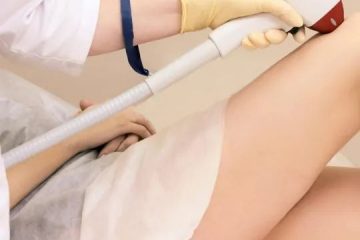Obsessive-Compulsive Disorder (OCD) is a condition that goes far beyond simple habits or personality quirks. It involves persistent, unwanted thoughts (obsessions) and repetitive behaviors (compulsions) that an individual feels driven to perform. These patterns can disrupt relationships, work, and daily life. Fortunately, professional help is available through counseling services for obsessive-compulsive disorder and structured OCD therapy programs.
This article explores how these approaches work, the most effective therapeutic methods, and why seeking professional support can make a lasting difference.
Understanding OCD
OCD affects people of all ages and backgrounds. Common obsessions include fears of contamination, unwanted aggressive thoughts, or doubts about whether something has been done correctly (like locking the door). Compulsions may involve repeated hand washing, checking, counting, or arranging objects in specific ways.
While many people occasionally experience intrusive thoughts or repetitive behaviors, OCD becomes a disorder when these patterns consume significant time and cause distress. At this point, professional OCD therapy and counseling are essential for relief.
Counseling Services for Obsessive-Compulsive Disorder
Counseling provides a safe, supportive environment to talk about symptoms and challenges. Counseling services for obsessive-compulsive disorder often focus on:
- Assessment and Evaluation – Identifying the type and severity of obsessions and compulsions.
- Psychoeducation – Learning about how OCD develops and why compulsions temporarily reduce anxiety.
- Talk Therapy – Discussing fears and thought patterns to reduce isolation and shame.
- Skill-Building – Counselors teach strategies to manage triggers without resorting to compulsions.
- Family Involvement – Involving family members to improve understanding and support at home.
Counseling alone may not “cure” OCD, but it helps individuals build resilience and prepares them for targeted therapy.
OCD Therapy: Evidence-Based Approaches
The most effective OCD therapy is structured, evidence-based, and focuses on both thoughts and behaviors.
1. Cognitive Behavioral Therapy (CBT)
CBT is the foundation of OCD treatment. It helps individuals recognize distorted thoughts and replace them with healthier perspectives.
2. Exposure and Response Prevention (ERP)
ERP is considered the gold standard in OCD treatment. It involves gradually exposing individuals to triggers while preventing them from engaging in compulsions. Over time, anxiety decreases, and compulsive behaviors lose their hold.
For example: A person afraid of germs may be guided to touch a doorknob and resist the urge to wash their hands immediately. Repeated practice reduces fear and builds confidence.
3. Acceptance and Commitment Therapy (ACT)
ACT helps individuals accept intrusive thoughts without acting on them. It emphasizes mindfulness and living in alignment with personal values rather than being controlled by compulsions.
4. Medication Support
In some cases, therapy is paired with medications such as SSRIs (selective serotonin reuptake inhibitors), which help reduce OCD symptoms. This is usually managed by a psychiatrist alongside therapy.
Benefits of Seeking Professional Support
Professional counseling and therapy provide unique benefits that self-help cannot:
- Personalized Plans – Treatment tailored to individual triggers and severity.
- Accountability – Regular sessions ensure progress continues.
- Supportive Environment – Therapists provide encouragement during challenging phases.
- Relationship Improvement – Therapy reduces strain on family and friends.
- Lifelong Skills – Individuals learn coping techniques that remain effective even after therapy ends.
By combining counseling services for obsessive-compulsive disorder with structured OCD therapy, many individuals achieve significant improvement in symptoms and overall quality of life.
Self-Help Practices to Support Therapy
While professional treatment is vital, individuals can reinforce recovery with self-help strategies such as:
- Practicing mindfulness meditation to manage intrusive thoughts.
- Keeping a journal to track triggers and progress.
- Using relaxation techniques like deep breathing to reduce stress.
- Building a healthy lifestyle with exercise, proper sleep, and balanced nutrition.
These practices strengthen therapy outcomes and help prevent relapse.
When to Seek Immediate Help
It is important to seek immediate professional support if:
- Obsessions and compulsions consume several hours a day.
- Anxiety becomes overwhelming and interferes with daily functioning.
- Attempts to resist compulsions lead to severe distress.
- Symptoms trigger depression, hopelessness, or thoughts of self-harm.
In such cases, contacting a professional for counseling services for obsessive-compulsive disorder or specialized OCD therapy is essential.
Final Thoughts
OCD can feel like a relentless cycle, but with the right treatment, it is manageable. Professional counseling services for obsessive-compulsive disorder provide understanding and support, while targeted OCD therapy methods such as CBT and ERP help break the cycle of obsessions and compulsions.
Recovery takes time, but every small step forward builds confidence and reduces the disorder’s impact. With therapy, support, and persistence, individuals can reclaim their lives and find freedom from OCD.





